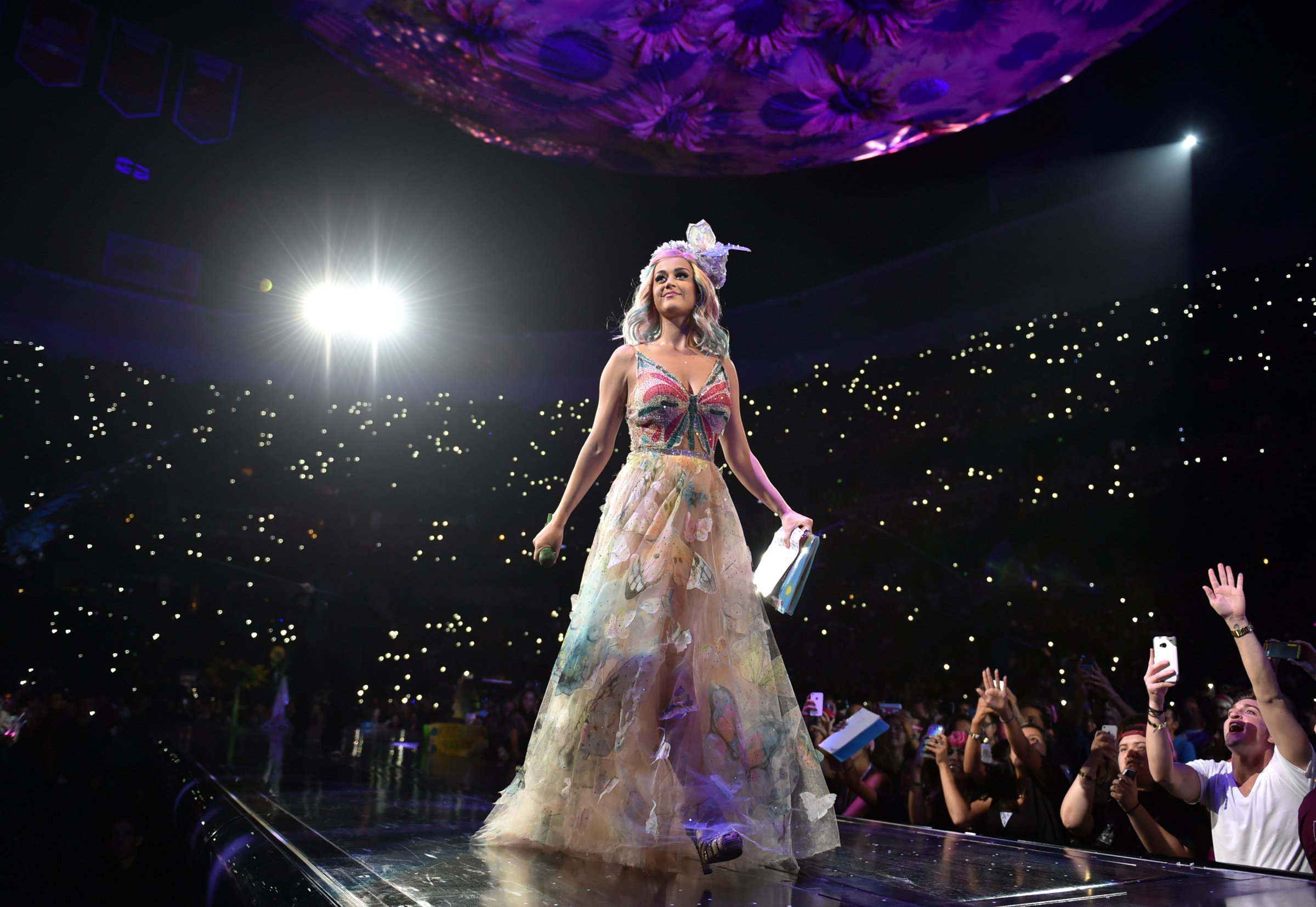
As has been widely reported, Katy Perry will be the halftime performer at the next Super Bowl, in Glendale, Ariz. in February 2015. This hardly comes as a shock: Perry had already been the object of widespread speculation after an August Wall Street Journal report that pinned her, Rihanna, and Coldplay as the three acts in contention for the gig and indicated all three had been asked to pay for the booking. The “Dark Horse” singer recently appeared on a college football broadcast and confirmed that she had been in talks with the NFL but refused to pay.
And yet for Perry, the Super Bowl is extremely valuable, and not merely for the huge exposure it will provide her. (This year’s Super Bowl was the most-watched television broadcast of all time, and provided halftime act Bruno Mars with a healthy sales bump.) With this booking, Perry obtains something she’s sought throughout her career — credibility.
Performers have, in recent years, gotten different things from performing in front of a hundred million viewers. In the 2000s, the halftime act was a male recording legend — a likely response to the controversy over Janet Jackson’s bared breast at the 2004 Super Bowl. Artists from Paul McCartney to Bruce Springsteen got to connect with young music fans who might otherwise have been unreachable.
In more recent years, the choices have gotten edgier, with younger or less venerated acts using the stage to cement their stardom; Madonna, never as critically acclaimed as her male contemporaries, made a case for herself as the era’s defining pop star with a bombastic show in 2012, while Beyoncé’s exhaustive, brilliantly executed 2013 show kicked off her current phase as an object of universal admiration. Bruno Mars, less famous than either but unique in his role as a self-conscious throwback act, got to burnish his reputation as a live performer.
Perry is certainly famous — for as widely-watched as the Super Bowl is, it’s hard to imagine a pop music fan tuning in who isn’t aware of at least one of her hits. And yet she’s one among a very crowded field, a set of young female pop stars including Lady Gaga, Rihanna, and Miley Cyrus, all of whom strive to define themselves and none of whom is a uniting figure. She’s a solid hitmaker with no real persona or standout trait (notably, she’s the only halftime show performer since the Janet Jackson incident to never have won a Grammy). While Madonna, Beyoncé, and Bruno Mars were already alone in their fields when picked for the gig, Perry feels like she has something to prove.
But in February, she’ll be the only performer in her particular cohort to have played the Super Bowl. This is an opportunity for the singer behind some of the biggest pop songs in the world to become, if all goes well, one of the biggest pop stars in the world.
More Must-Reads from TIME
- Inside Elon Musk’s War on Washington
- Meet the 2025 Women of the Year
- The Harsh Truth About Disability Inclusion
- Why Do More Young Adults Have Cancer?
- Colman Domingo Leads With Radical Love
- How to Get Better at Doing Things Alone
- Cecily Strong on Goober the Clown
- Column: The Rise of America’s Broligarchy
Contact us at letters@time.com